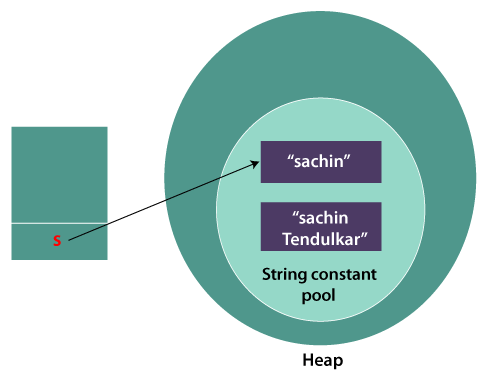Why Are Strings Immutable in Java? Comprehensive Guide for Beginners
What Is Immutable Strings and Just How It Functions
In the world of shows, comprehending the concept of unalterable strings is critical for producing protected and robust applications. Immutable strings describe strings that can not be changed after they are created, making certain information honesty and predictability within the code. This fundamental concept plays a crucial function in various programs languages and provides a distinct approach to taking care of data. By discovering the ins and outs of how immutable strings function, one can discover a world of benefits and opportunities that can raise the high quality and efficiency of software growth.
The Fundamentals of Unalterable Strings
Unalterable strings, as a basic idea in programming, are character series that can not be transformed once they are developed. This means that when a string is appointed a value, that worth can not be altered. In languages like Python and Java, strings are immutable objects, causing different effects in terms of memory monitoring and data integrity.
One of the crucial advantages of immutable strings is that they supply a complacency in data adjustment. Considering that the web content of an immutable string can not be customized, it makes certain that the original information stays undamaged, reducing the threat of unplanned adjustments throughout program implementation (Why are strings immutable in Java?). This building also simplifies debugging processes, as developers can trust that as soon as a string is specified, its worth will not be accidentally altered
When a new string is developed based on an existing one, instead than customizing the original string, the new worth is saved independently. In general, recognizing the essentials of immutable strings is critical for grasping programs principles and optimizing code efficiency.
Advantages of Immutable Strings
Structure upon the safety and security and performance advantages of unalterable strings, their advantages extend to enhancing code dependability and streamlining concurrent programs jobs. By being immutable, strings can not be modified after creation, which removes the threat of unplanned adjustments in the information they keep. This integral immutability ensures that as soon as a string is created, its worth stays consistent throughout the program's implementation, minimizing the opportunities of insects triggered by unanticipated alterations.
Additionally, unalterable strings add to code dependability by making it easier to reason regarding the state of a program. Considering that strings can not be altered, programmers can rely on that a string will certainly always hold the very same value, simplifying debugging and maintenance efforts. This predictability leads to much more steady and dependable codebases.

Execution in Programming Languages
Within various shows languages, the incorporation of unalterable strings is a basic facet that influences how information is a knockout post taken care of and adjusted within dig this code structures. The execution of unalterable strings differs throughout various shows languages, with each language supplying its very own systems to sustain this concept.

On the other hand, languages like C and C++ do not have built-in support for immutable strings. Developers in these languages should manually execute immutability by implementing regulations within their code to avoid direct alterations to string items.
Finest Practices for Dealing With Immutable Strings
When taking care of immutable strings in shows languages like Java and Python, adhering to finest methods ensures protected and reliable data control. One of the crucial best methods is to utilize StringBuilder or StringBuffer rather of straight manipulating strings, specifically when managing comprehensive concatenation operations. These courses provide mutable alternatives for string manipulation, aiding to stay clear of unneeded memory allowances and boosting performance.
One more best technique is to utilize string interpolation or formatting operates given by the language instead of manual concatenation. This not only boosts readability but likewise aids in preventing typical pitfalls such as unintentional string modifications. Additionally, when dealing with delicate information such as passwords or API tricks, it is important to prevent saving them as simple message in immutable strings. Utilizing secure storage space devices like char arrays or specialized collections for dealing with delicate information helps mitigate safety and security dangers connected with unalterable strings.
Real-world Applications and Instances
Exploring practical implementations of unalterable strings in various industries reveals their considerable influence on data integrity and system integrity. In the medical care field, unalterable strings play a critical role in ensuring the protection and discretion of person information. By preventing unauthorized alterations to delicate information such as medical records and prescriptions, unalterable strings help preserve conformity with rigorous privacy laws like HIPAA.
Banks likewise gain from the immutable nature of strings to enhance the safety of customer information and deal records. Immutable check my blog strings help protect against fraud and unauthorized modifications to financial details, giving a durable defense against cyber threats and guaranteeing the trust and confidence of customers.

Final Thought
In verdict, immutable strings are dealt with and unchangeable series of characters that use advantages such as string safety and security and enhanced efficiency in programming. They are applied in various shows languages to make certain information honesty and safety and security. Ideal techniques for collaborating with immutable strings consist of preventing straight adjustments and making use of approaches that return new string things. Real-world applications of unalterable strings include data file encryption, caching, and string adjustment tasks.
Immutable strings refer to strings that can not be altered after they are created, making sure data honesty and predictability within the code. When a brand-new string is developed based on an existing one, rather than modifying the original string, the new worth is kept separately.In languages like Java and Python, strings are immutable by default, meaning that as soon as a string item is created, its value can not be transformed - Why are strings immutable in Java?. Ideal methods for working with immutable strings include preventing straight adjustments and making use of techniques that return brand-new string objects. Real-world applications of immutable strings include information file encryption, caching, and string manipulation jobs